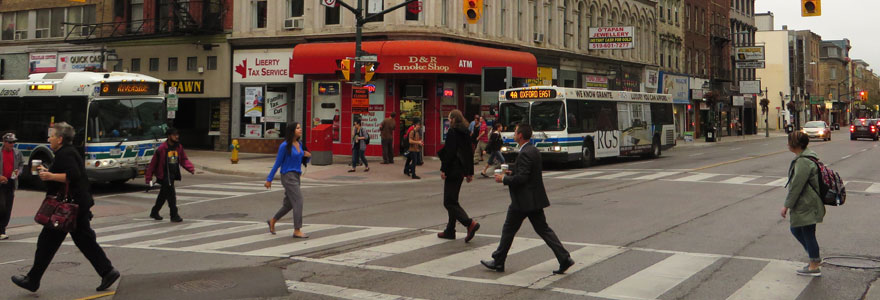News and Updates
Contact
Faculty of Social Science
Social Science Centre
Room 9438
Western University
T. 519-661-2053
F. 519-661-3868
E. social-science@uwo.ca
Understanding discrimination in London
September 20, 2021
Story by Rob Rombouts; Image by Ken Lund from Reno, Nevada, USA, CC BY-SA 2.0, via Wikimedia Commons
A report commissioned by the London & Middlesex Local Immigration Partnership (LMLIP) provides new data on how prevalent discrimination is in London and region.
Based on responses to a representative survey, the research found that four out of 10 immigrants and visible minorities faced discrimination in London and Middlesex in the last three years, and six out of 10 Indigenous respondents experienced discrimination.
The report, Discrimination Experienced by Immigrants, Visible Minorities, and Indigenous Peoples in London and Middlesex was prepared by Mamta Vaswani, a Postdoctoral Fellow in NEST, and Victoria Esses, Director of NEST, and professor in the Department of Psychology.
Discrimination took several forms and occurred in many different settings, including at school, in employment settings, and in public places.
“One of the top contexts in which immigrants and visible minorities and indigenous peoples reported experiencing discrimination was when attending school or classes,” said Esses.
Based on a 2020 report from Western University’s Anti-Racism Working Group, 38.8% of undergraduate university students and 23.8% of faculty members at Western University reported experiencing racism.
The report, commissioned by the LMLIP is part of the partnership’s anti-racism and anti-discrimination work, and will be reviewed by the City of London’s Community and Protective Services Committee. The report makes three sets of recommendations to address discrimination at all levels, especially within contexts where people face discrimination, including educational settings.
The first recommendation focuses on promoting an environment that encourages victims of discrimination to report their experiences. This may include an online reporting site such as are being set up in communities across the country. Differences between survey responses and other data on local discrimination suggest many discrimination experiences go unreported.
The second is to help victims of discrimination to use effective coping strategies, especially those which are most effective for their specific characteristics and circumstances, so that they do not internalize the discrimination that they experience.
The final recommendation is to engage in effective initiatives to prevent and reduce discrimination. Anti-racism program should be focused on the perpetrators, who were most commonly reported to be middle-aged and White. The report also suggests a multi-level approach, including bystanders, organizations, and system level interventions, will be most effective in reducing discrimination.
For organizations, the report states that making social justice a central value at all levels of an organization is an important first step. Organizations should also examine policies and culture, and training for members, to combat discriminatory behaviour or practices in organizations.
The full report is available online. Esses also spoke to CBC’s London Morning about the report findings and recommendations.
Esses, and Huda A. Hussein, Coordinator of the London & Middlesex Local Immigration Partnership will present conclusions from the report as part of the NEST Distinguished Lecture Series on Friday, October 1.

